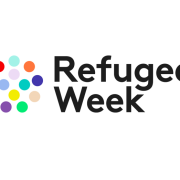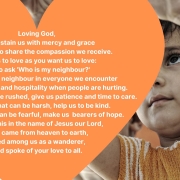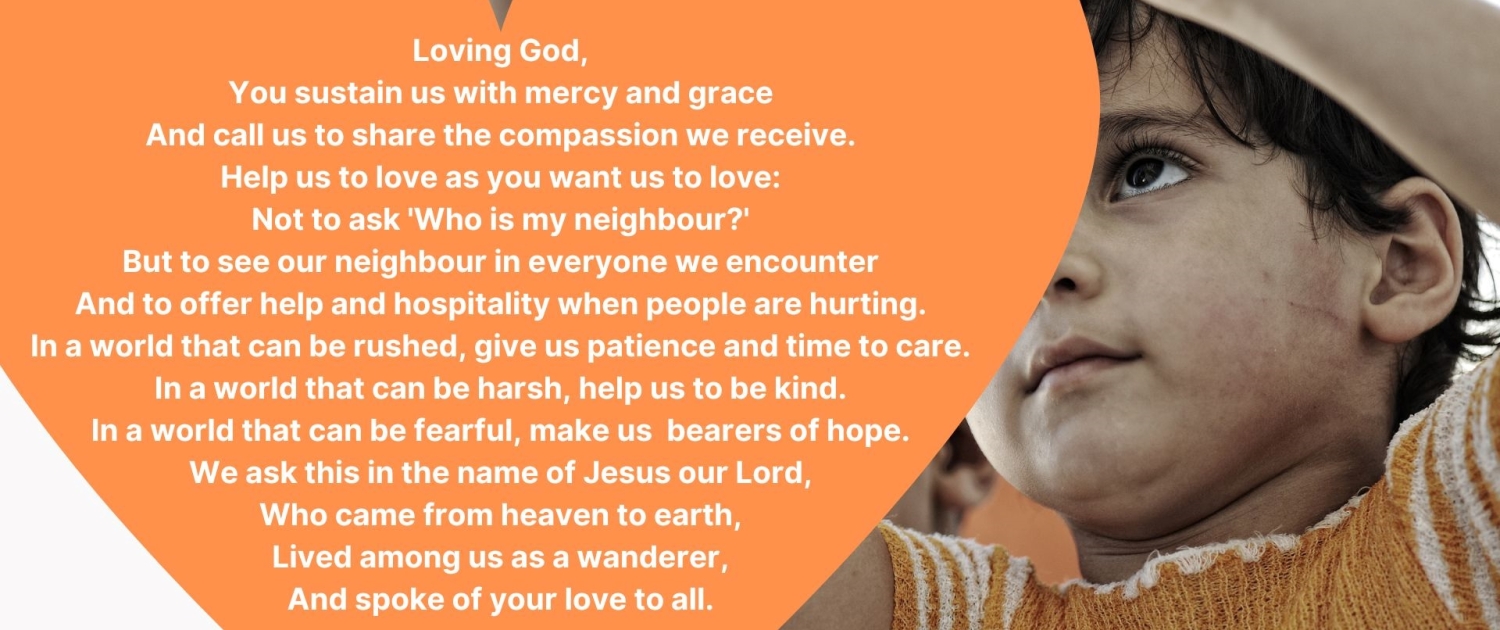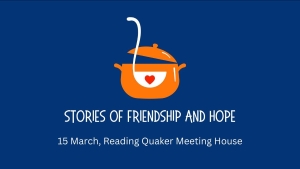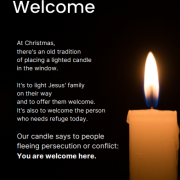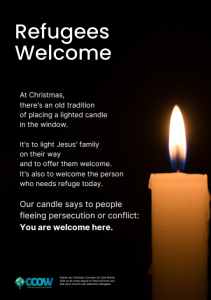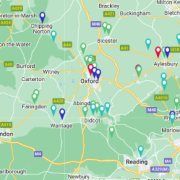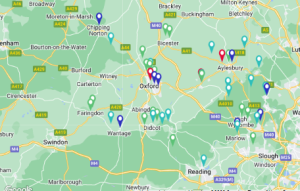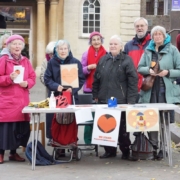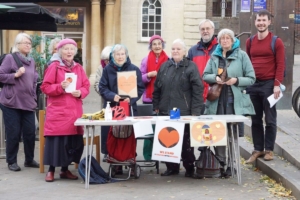Updated as of the afternoon of 10 July 2023
The ‘Illegal Migration Bill’, which UNHCR has said would, if passed as introduced, “amount to an asylum ban” continues its journey through Parliament. It will have its Third Reading in the House of Lords on 10 July, and is expected to be considered in the House of Commons on Tuesday, the 11th of July.
Immediate Need: Contact your MP expressing opposition to the Bill and/or asking them to accept all the House of Lords Amendments
While the ‘Illegal Migration Bill’ remains deeply problematic, the House of Lords made a number of very helpful amendments. The revised Bill can be found here and our list of the amendments is here.
Anyone with an interest in protecting asylum and the rights of asylum seekers should email or ring their MP in advance of their consideration of the amended Bill. If you don’t already have your MP’s contact details, you can find out how to contact them via the They Work for You website.
If the House of Commons rejects the amendments and sends the Bill back to the House of Lords, you will wish to contact your MP when it subsequently returns to the House of Commons again, too! Email us to be included on the list for updates.
We would advocate asking your MP to accept ALL of the House of Lords amendments.
It has now been suggested that the government is likely to give concessions on a few key issues, including detention of children and pregnant women and the retrospective nature of the Bill. These are all important issues and we would hope, at the very least, to see progress in these areas.
But it is important to remember that all refugees are vulnerable – and that the Bill as a whole has been described, by UNHCR, as “an asylum ban— extinguishing the right to see protection in the United Kingdom for those who arrive irregularly, no matter how compelling their claim may be.”
It is therefore important to press not only on a few issues above but on the whole Bill. We have advice on how to do this below.
Guides to Contacting Your MP and Help with Messaging
Time is of the essence. If you have time, please write or call your MP today.
Use your own words as much as possible: MPs will respond to what is genuinely from you more than they will to a form message.
Please note that you don’t need to write or leave a complex message: just saying something along the lines of “I want to support vulnerable people who are in need of protection and to maintain the UK’s international standing – and I would, therefore, ask you to support all the House of Lords amendments to the ‘Illegal Migration Bill'” gets the point across.
If you have a Conservative MP, you might want to try messaging such as:
I am concerned that the Government’s ‘Illegal Migration Bill’ is neither effective nor compassionate.
- It is held up as addressing questions around migration, but refugees make up only a tiny percentage of net migration numbers.
- Numerous bodies – from the UNHCR to the Law Society to the Children’s Commissioner – have said that the Bill’s provisions are likely to be incompatible with the UK’s international treaty obligations, leading to potential damage to our international reputation and to our ability to work with partners to find solutions to complex problems.
- The Bill has the potential to result in the detention of large numbers of people indefinitely at the expense of our domestic spending.
- The Bill changes limits on detention for children and pregnant women which were introduced by the Conservatives themselves, despite the known harm such detention can cause; in addition, the Children’s Commissioner has raised numerous issues about the Bill’s impact on children more generally
- By denying support to victims of trafficking, the Bill undermines the Conservatives’ flagship work on trafficking and hands traffickers additional threats to use against their victims.
I remain concerned about the entirety of the Bill and its approach. That said, the Lords Amendments would help to alleviate or remove some of the key issues with this Bill, and I urge you to vote to accept them all.
To customise your letter further, take a look at the material below.
Further Resources
More Detail: What the Lords amendments do
The amendments are asking MPs to do four things:
- Ensure that policy and practice are consistent with domestic law and international treaty obligation (and are not made retrospective)
- ensuring that the provisions of the bill are interpreted consistently with the UK’s obligations under relevant international human rights treaties
- ensure the lawfulness of immigration detention remains subject to principles established in the common law.
- protecting the right of courts to temporarily delay the removal of a individual to a third county.
- ensuring that the ‘duty to deport’ doesn’t apply to people who arrived before the Bill comes into force
- Protect people who have already suffered exploitation and tackle the issues of trafficking
- enabling victims of trafficking and unlawful exploitation to receive appropriate support
- strengthening the ability to prosecute traffickers by recognising that people who have been trafficked or unlawfully exploited are more likely to be able to assist investigations or criminal proceedings if they are still in the UK
- putting a legal responsibility on the National Crime Agency to tackle organised immigration crime across the English Channel
- requiring the government to implement a ten-year strategy, in collaboration with international partners, to tackle human trafficking and refugee crises
- requiring the government to set out its plans to allow people from abroad to enter safely and lawfully into the UK and thereby reducing the need to take risky journeys or rely on traffickers
- Protect the most vulnerable people and groups from harm
- protecting children from detention, from incorrect age assessments, from being taken out of care and put into unsuitable accommodation and enabling them to have their human rights and asylum claims considered, if they are unaccompanied and exempt from the ‘duty to remove’ conditions
- protecting pregnant womenand their unborn children from detention
- protecting LGBT+ people from being removed to countries where they might face persecution
- protecting people at risk of ‘serious harm’ if removed to a country from having to show that the serious harm would be ‘irreversible’ in order to challenge their removal
- Protect people from being detained indefinitely at taxpayer expense
- requiring the government to consider a protection or a human rights claim if the applicant has not been removed from the UK within six months of the claim being deemed inadmissible. At present, the fear (see the Refugee Council study here) is that tens of thousands of people will have their claims deemed inadmissible, regardless of their merit. In theory, they will be detained until removed, but since the only removal agreements that exist are currently with Albania and Rwanda – and the latter has been deemed unlawful – it is unlikely that the people will be able to be removed. This means that the Government will need to detain thousands of people for indefinite periods of time, at taxpayer expense (and it is worth noting that they will not be able to use Overseas Development Assistance for this purpose, as they do for refugees and asylum seekers). The risk to the mental and physical health of those detained, and the expense to the taxpayer are considerable. This amendment would enable people who had not been removed within six months to make a human rights/asylum claim.
________________________________________________________________________________________________
In our March newsletter we shared links to background information on the Bill and suggestions for prayer and action. Further helpful analysis can be found in the joint Second Reading Briefing by leading refugee charities including Safe Passage and Freedom from Torture, and more detailed legislative scrutiny as national experts answer questions from the parliamentary Joint Committee on Human Rights (video recording).
Many religious and secular groups have written in opposition to the Bill over the past months, including 1450 church leaders saying it is “incompatible with our Christian conviction that all human beings are made in the image of God” and will “foster discrimination and distrust” and cause “immeasurable harm”.
In addition, during the House of Lords debate, many Christian leaders, both ordained and lay, have made interventions.
How can I make a difference?
Once the Bill has gone through the House of Lords, it will come back to the House of Commons. In preparation for this, we would encourage everyone who can to get in touch with their MP: given the potential impacts of the Bill, it really is worth making your voice heard.
MPs listen most fully to people who request a meeting with them. They also respond when people write them a letter which is clearly their own and not a form letter.
On this page, we offer updated resources to help you speak or write with confidence:
We can also offer additional support and training, including a checklist of things to do in preparation for a meeting with your MP. Email us for details.
If you don’t have time to meet or write to your MP, please do sign a petition, such as the Refugee Council’s campaign for a fair and humane asylum system.



